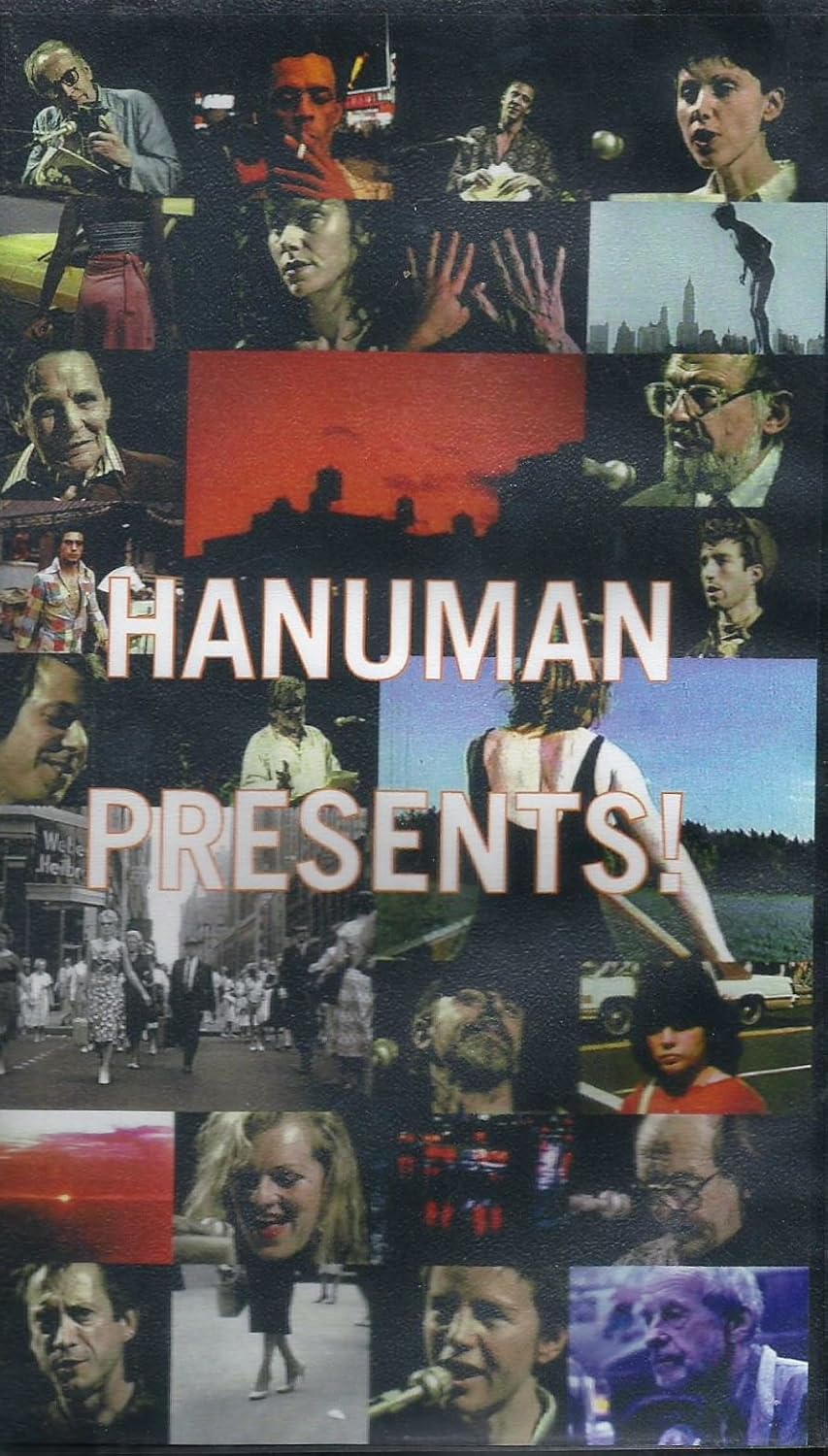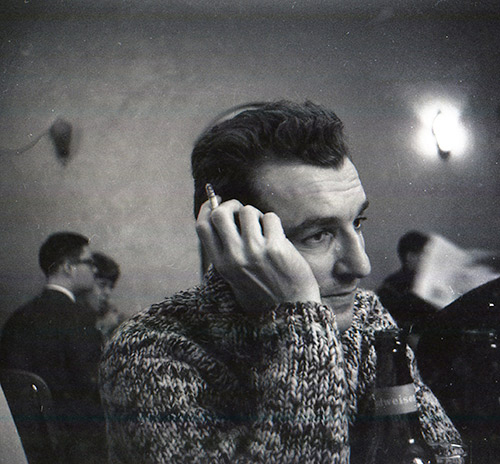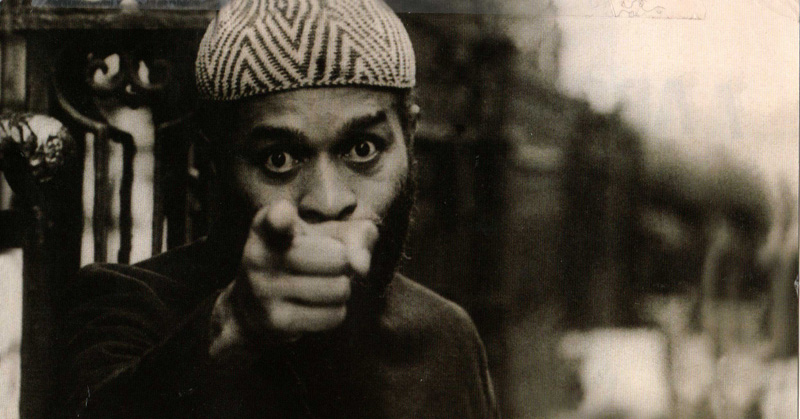Featured resources
From "Down To Write You This Poem Sat" at the Oakville Gallery
- Charles Bernstein, "Phone Poem" (2011) (1:30): MP3
- Caroline Bergvall, "Love song: 'The Not Tale (funeral)' from Shorter Caucer Tales (2006): MP3
- Christian Bôk, excerpt from Eunoia, from Chapter "I" for Dick Higgins (2009) (1:38): MP3
- Tonya Foster, Nocturne II (0:40) (2010) MP3
- Ted Greenwald, "The Pears are the Pears" (2005) (0:29): MP3
- Susan Howe, Thorow, III (3:13) (1998): MP3
- Tan Lin, "¼ : 1 foot" (2005) (1:16): MP3
- Steve McCaffery, "Cappuccino" (1995) (2:35): MP3
- Tracie Morris, From "Slave Sho to Video aka Black but Beautiful" (2002) (3:40): MP3
- Julie Patton, "Scribbling thru the Times" (2016) (5:12): MP3
- Tom Raworth, "Errory" (c. 1975) (2:08): MP3
- Jerome Rothenberg, from "The First Horse Song of Frank Mitchell: 4-Voice Version" (c. 1975) (3:30): MP3
- Cecilia Vicuna, "When This Language Disappeared" (2009) (1:30): MP3
- Guillaume Apollinaire, "Le Pont Mirabeau" (1913) (1:14):
MP3
- Amiri Baraka, "Black Dada Nihilismus" (1964) (4:02): MP3
- Louise Bennett, "Colonization in Reverse" (1983) (1:09): MP3
- Sterling Brown, "Old Lem " (c. 1950s) (2:06): MP3
- John Clare, "Vowelless Letter" (1849) performed by Charles Bernstein (2:54): MP3
- Velimir Khlebnikov, "Incantation by Laughter" (1910), tr. and performed by Bernstein (:28) MP3
- Harry Partch, from Barstow (part 1), performed by Bernstein (1968) (1:11): MP3
- Leslie Scalapino, "Can’t’ is ‘Night’" (2007) (3:19): MP3
- Kurt Schwitters, "Ur Sonata: Largo" performed by Ernst Scwhitter (1922-1932) ( (3:12): MP3
- Gertrude Stein, If I Told Him: A Completed Portrait of Picasso (1934-35) (3:42): MP3
- William Carlos Willliams, "The Defective Record" (1942) (0:28): MP3
- Hannah Weiner, from Clairvoyant Journal, performed by Weiner, Sharon Mattlin & Rochelle Kraut (2001) (6:12): MP3
Selected by Charles Bernstein (read more about his choices here)
|
Posted 11/12/2025
Today we're spotlighting a newly archived podcast series here at PennSound affectionately dubbed Love Jawns: A Mixtape. Originally published between 2019 and 2020 in conjunction with Philadelphia Contemporary, Love Jawns: A Mixtape—or LJAM—was produced by Yolanda Wisher, Jaléssa Savage, and Wayv Wilson, and comprised two seasons, along with a collection of special episodes that effectively serves as a third season.
A love letter to the city of Philadelphia and a self-proclaimed "soundtrack of the city," each episode begins with an ethereal announcement from Wisher—"Doors are closing," a proclamation that should be instantly recognizeable to anyone who's ever taken the El in the past thirty years. An overarching soundtrack by a featured DJ then accompanies each episode, punctuated by readings by local and near-local figures, including a number of Philly's recent Poets and Youth Poets Laureate (including two former Kelly Writers House alumni, Husnaa Hashim and Wes Matthews, the latter of whom segmented audio recordings for PennSound as an undergraduate).
The full podcast series of twelve episodes, along with hi-res cover images and program notes, is available here.
Posted 11/3/2025
Another exciting reading series has come to us thanks to Michael Cavuto and Tessa Bolsover, poets and PhD students in the English Department at Duke University. The series, called Solarities, ran for three years from 2023 to 2025 at the Nelson Reading Room at Duke, and was funded by the Franklin Humanities Institute, with support from the English Department, Gender, Feminism and Sexuality Department, Duke Arts, and the Center for Caribbean and Latin American Studies.
Included among Solarities's featured guests some familiar names: Joseph Donahue, Nathaniel Mackey, Will Alexander, Hoa Nguyen, Alice Notley, and Stacy Szymaszek. The series comprises five entries and the full collection is available at the Solarities Reading Series page.
Posted 9/5/2025
Today’s massive new entry comes to us by way of series organizer Robert Mittenthal, who has generously supplied us with a vast collection of recordings from the Seattle-based Subtext Series. Our selection ranges from 1996 to 2009, during which the Subtext Series called three Seattle venues home: Speakeasy Cafe, Richard Hugo House, and the Chapel Performance Space at Good Shepherd Center.
Mittenthal writes:
We came up with what turned out to be a sustainable format for the series. Two person readings, once per month, on the same day, for example, the 3rd Thursday, at the same venue. One local writer, and one from out of town. Regardless of what was raised via donations at the door, we would pay the readers a nominal fixed amount, plus a small travel stipend for the visitor. We had no budget and no funding, so we focused primarily on the west coast, & tried to coordinate with writers who were traveling thru the Northwest.
Mittenthal’s “we” refers to series curators Laynie Browne, Jeanne Heuving, Herb Levy, Ezra Mark, Bryant Mason, C.E. Putnam, and Nico Vassilakis, with guest curators including Curtis Bonney, Daniel Comiskey, Joseph Donahue, Kreg Hasegawa, Drew Kunz, Will Owen, and Lou Rowan. Recordings were created for roughly half of the readings over the course of the fifteen years of the Subtext Series by Herby Levy and Bryant Mason.
You can explore the whole collection, which features 93 of the readings, split into sections based on performer, here.
Posted 8/29/2025

Image courtesy of King's College London.
We at PennSound are pleased to announce the launch of the new Eric Mottram Centennial Collection. Courtesy of Geoff Browell, Manuela Pallotto Strickland, and the Archives at King’s College London’s Libraries and Collections, the Mottram Collection comprises hundreds of recordings from Eric Mottram’s personal collection, including interviews he conducted, his own readings and lectures, readings by others, and several BBC recordings (of which we’ve only selected the most relevant).
The publication of the Mottram Collection culminates a nearly three-year process which began with the rather tedious digital transfer of about 330 GB of WAV files from the King’s College London collection to PennSound, a huge sum of data which was then sorted, labeled, converted, and posted over two summers by PennSound interns Madeleine Song and Madeline Chun.
The new collection is truly a treasure trove of newly public recordings, with too many names to list here—but highlights include Charles Olson, Jerome Rothenberg, Muriel Rukeyser, Wallace Stevens, Anne Waldman, and Louis Zukofsky, to name just a few. And thanks to Hannah Judd, many of the recordings in the Mottram Collection already have segmented versions available on their individual author pages.
Labor Day Weekend is upon us, and there's no better time to start digging in!
Posted 7/30/2025
We begin this week with one of my favorite recordings from our archives and one I'm very proud that we can share with our listeners: Tuli Kupferberg's 1966 ESP-Disk release, No Deposit, No Return. While many know the late Kupferberg for his inimitable contributions to poetry-rock mavericks, the Fugs, this ambitious solo album is far more obscure, though not without its dedicated fans.
Subtitled "an evening of pop poetry" on the record sleeve, which devolves into "a nightmare of popular poetry" in Kupferberg's opening track, No Deposit, No Return is comprised exclusively of found texts performed with musical accompaniment "by Gary Elton on the various": "Real Advertisements," as the back cover explains, "As they appeared in newspapers, magazines, in direct mail. No word has been added. There are genuine ads. Parts of some ads have been repeated. Parts of some ads have been omitted. But these are the very texts. These are for real!" The end result is quite poetic, yet also drifts into the realm of pure comedy — albeit a comedy rooted in social critique — along with the golden age of radio, thanks to Elton's musical backings and sound effects. The invocation of sixties pop sensibilities and appropriative aesthetic also adds an element of the visual arts, creating a truly hybrid electric form that neatly parallels the contemporaneous sound poetry of John Giorno in building upon the foundational work of Charles Reznikoff.
"Everyone I suppose has always wanted to write his own commercial." Kupferberg notes in the introductory track, explaining the album's origins. "I have resisted this temptation strenuously, especially for this album, but when a certain well-known shampoo company came to the Fugs last summer, proposing that we do our own commercial for their new summer product, I countered with my own suggestion for a new product" — namely, Pubol, a pubic hair shampoo — and thus the project was born.
Aside from consumerism and America's culture of violence, No Deposit, No Return's major preoccupation is sex and sexuality, as Kupferberg performs advertisements for timid swingers, not-so-timid swingers, fetish photos, an erotic novel ( Violations of the Child Marilyn Monroe, attributed to "Her Psychiatrist Friend") and a scary-looking penis pump,"the Hyperemiator," whose ad is one of two reproduced on the record's back cover. In a Foucauldian sense, particularly in the midst of a period of revolutionary sexual exploration, the poet reminds us that societal curiosity about sex and atypical sexual interest are nothing new. Regardless, there's a startling difference between the hidden, repressed and clinical nature of the poems on No Deposit, No Return, and the joyous and liberated carnality celebrated in Fugs' songs like "Supergirl" and "Coca Cola Douche." Thus, the album serves as both a strident cross-generational critique and a statement of shared beliefs, targeted at young audiences through one of their most popular media. In a fashion not dissimilar from what Kupferberg parodies in tracks like the heartbreaking "Social Studies," or the Fugs' "Kill for Peace," No Deposit, No Return is very effective propaganda.
We're grateful to Kupferberg's daughter, Samara, for her permission to share this groundbreaking record, which you can listen to in its entirety here. By clicking on the thumbnail images you can view large-format scans of the album covers and liner notes as well.
Posted 7/28/2025
The heart of this collection is a two-part career-spanning reading at Washington, D.C.'s Coolidge Auditorium, on October 18, 1965 — an event held in coordination with the Library of Congress — which serves as a fitting tribute to the influential poet, politician, and pedagogue, who'd pass away less than one year later. After a lavish introduction, Tolson starts with his debut collection, Rendezvous with America and hits many of the high points of his prestigious career, including his magnum opus, Dark Symphony, and Libretto for the Republic of Liberia, written during his time as that nation's poet laureate. Running just short of eighty minutes, Tolson's reading includes the poems "Sometimes," "The Gallows," "If You Should Lie to Me," "The Primer for Today," "The Dictionary of the Wolf," "Harlem Gallery," "The Birth of John Henry," "Ballad on Old Satchmo," and "The Sea Turtle and the Shark," among others, with commentary provided along the way.
This retrospective performance is nicely complemented by a second recording of excerpts from Dark Symphony, for which, unfortunately, we have no information regarding its recording date and location. Nevertheless we're grateful to be Tolson's estate and the Library of Congress for the opportunity to present these materials to our listeners. Click here to visit PennSound's Melvin B. Tolson author page.
Posted 7/25/2025
We close out this week by taking a look at our holdings from bilingual poet, essayist, author, editor and translator Sophia Naz. Naz has published four poetry collections in total — Peripheries (Cyberhex 2015), Pointillism (Copper Coin 2017), Date Palms (City Press 2017), and Open Zero (Yoda Press 2021) — as well as a biography of her mother, titled Shehnaz; A Tragic True Tale of Royalty, Glamour and Heartbreak (Penguin Random House 2019). On her PennSound author page you'll find a pair of sessions recorded at the Kelly Writers House's Wexler Studios in 2019 and 2021.
Naz's April 3, 2019 session consists of sixteen titles in total, including "Black Butterflies," "Eye of the Labyrinth," "The Heart of the Matter," "Habeas Corpus," "If You Spoke, Firefly," "Odysseys of an Onion Moon," "Chappan Churi," "Ode to a Scar," "In the Margins," "Atomic Nocta," and "The Department of Wronged Rights." Jumping forward to September 8, 2021, Naz's second session for PennSound included five short poems: "The Lesson," "Thumbnail," "Split Ends," "Nakhuda," and "The Dance."
Posted 7/23/2025
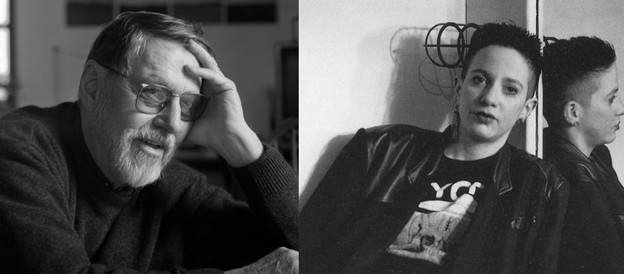
Today we're highlighting a fascinating meeting of two seemingly incongruous minds: on December 12–13, 1979, Kathy Acker was a guest of Robert Creeley's at SUNY-Buffalo. Over those two days she read from her own work, delivered a talk on French novelists, and was interviewed by Creeley. Both events have been segmented, and are available on our Kathy Acker author page. After introductory comments by Creeley, Acker begins with "Tangier," a long chapter (the recording is forty-six minutes long) from Blood and Guts in High School about meeting Jean Genet in Tangiers. She and Creeley then talk briefly about Erica Jong before the first day's event ends.
The second day begins with Acker offering introductory comments on the pair of French novelists "whose work I'm absolutely fascinated with" that she'll be discussing in this session: Pierre Guyotat and Laure (the pen name of Colette Peignot). "You can't get these books in this country. Don't even try," Acker warns, however she explains that "I wanted to present what I'm doing with their work to you" — even though her translations are rough first drafts and "my French is very bad," ("I knew it enough to know I didn't know it," she later tells the audience) — because of how captivated she became with these authors on a recent trip to France. Specifically, this interest ties into language: both her experience of their language and mediation inherent to encountering a foreign language of which one only has a basic knowledge, but also concerns that have followed her for much longer: "It seemed to me that more and more — I've lived in New York for the last seven years — [that] language is almost impossible now. It's as if ... to have a language, to be able to really speak to someone, seems to be almost like total freedom, in my mind."
She then reads brief translations from each author's work: an excerpt from Guyotat's novel, Eden, Eden, Eden, followed by a piece by Laure about her childhood. A half-hour lecture on the two authors comes next, with a discussion session of about the same length wrapping up the event. That conversation has been segmented into five thematic parts: "on self-expression," "on self-reflection," "on subjectivity and perception," "on the writer's perspective," and "on the divided self." You can listen in by clicking here.
Posted 7/21/2025
Today we revisit on of the gems of our PennSound Cinema page: Robert Ashley's seven-part "opera for television," Music with Roots in the Aether. We've hosted a copy of this series for many years, and replaced our original lo-fi copies with new remasters in January 2011. Here is Ashley's description of his sprawling project, first released in 1974: Music with Roots in the Aether is a music-theater piece in color video. It is the final version of an idea that I had thought about and worked on for a few years: to make a very large collaborative piece with other composers whose music I like. The collaborative aspect of Music with Roots in the Aether is in the theater of the interviews, at least primarily, and I am indebted to all of the composers involved for their generosity in allowing me to portray them in this manner.
The piece turns out to be, in addition, a large-scale documentation of an important stylistic that came into American concert music in about 1960. These composers of the "post-serial" / "post-Cage" movement have all made international reputations for the originality of their work and for their contributions to this area of musical compositions.
The style of the video presentation comes from the need I felt to find a new way to show music being performed. The idea of the visual style of Music with Roots in the Aether is plain: to watch as closely as possible the action of the performers and to not "cut" the seen material in any way — that is, to not editorialize on the time domain of the music through arbitrary space-time substitutions.
The visual style for showing the music being made became the "theater" (the stage) for the interviews, and the portraits of the composers were designed to happen in that style.
The seven installments focus on the work of (in order) David Behrman, Philip Glass, Alvin Lucier, Gordon Mumma, Pauline Oliveros, Terry Riley and Ashley himself — representing the vanguard of contemporary composers — and include both lengthy interviews as well as performances. We've also included a link to a 2004 essay in The Brooklyn Rail by Kenneth Goldsmith: in it, Goldsmith appraises Music with Roots in the Aether as "a great snapshot of the period," and observes that "we're lucky that someone went through all this trouble to preserve a very valuable piece of musical history."
Posted 7/18/2025
Today we're taking a closer look at PennSound's author page for Yusef Komunyakaa, which was created not long after our official launch in 2005. While it houses a modest set of recordings, it nevertheless has many of this much-anthologized poet's most iconic work.
The heart of our Komunyakaa page is a March 1998 reading at our own Kelly Writers House. This segmented recording consists of twenty-four in total, including favorite poems like "Facing It," "The Smokehouse," "Ode to the Maggot," "The God of Land Mines," "You and I Are Disappearing," and "Ode to a Drum," along with "Rhythm Method," "Letter to Bob Kaufman," "Camouflage in the Chimera," "We Never Know," and "Thanks," which has been a cherished part of PennSound's "Poems of Thanks and Thanksgiving" playlist for more than a decade. There's also a July 1999 appearance with Deborah Garrison on BBC Radio 3's Contemporary American Poetry Program, and the single poem "Slam, Dunk & Hook," published as part of the 2005 anthology Rattapallax.
We're grateful and proud to have Yusef Komunyakaa as part of the diverse array of voices found within PennSound's vast archives. You can listen to all of the poems mentioned above my clicking here.
Posted 7/16/2025
Today we're shining the spotlight on a historic recording of Etheridge Knight reading from Prison Poems at the Indiana State Prison. While we don't have precise info regarding the date of this event we believe that it took place towards the end of his incarceration, which ended in 1968. Of the eight years Knight served for armed robbery, he has said, "I died in 1960 from a prison sentence, and poetry brought me back to life."
When these segmented tracks were first introduced, our own Al Filreis commented that the "recording is marred by — or indeed perhaps enhanced and positively complicated by — the loud music playing in the background." You can judge for yourself.
Altogether, there are twenty-eight tracks, including an introduction and the following titles among many others: "Cell Song," "Hard Rock Returns to Prison from the Hospital for the Criminal Insane," "To the Man Who Sidled Up to Me and Asked: How Long You In Fer, Buddy?," "Poems for Black Relocation Centers," "For Malcolm, A Year After," and "Apology for Apostasy." You'll find these tracks, along with Watershed Tapes' album, So My Soul Can Sing and video footage of a 1980 reading for the Friends of the Scranton Public Library Poetry Series on our Etheridge Knight author page.
Posted 7/14/2025

You probably know Jim Dine as an important early Pop Artist whose aesthetic has since evolved to encompass other styles and modes. You could be forgiven for not knowing that Dine has also been a poet across the breadth of his prodigious career, from an early collaboration with Ron Padgett presenting Guillaume Apollinaire's The Poet Assassinated through to the 2015 publication of Poems to Work On: The Collected Poems of Jim Dine (Cuneiform). Today, we take a look at the contents of his PennSound author page. The earliest recording you'll find there comes from Robert Creeley's 70th birthday celebration, held at SUNY-Buffalo on October 11, 1996. This all-day event concluded with an hour-long conversation between Creeley, Dine, and Charles Bernstein. Next up, we have a September 2005 Segue Series reading from the Bowery Poetry Club, containing seventeen poems in total, including "From the Diary of a Non-Deflector," "I Wish All My Flowers Were Named Jesse Horowitz," "My Nose Goes Vibrating Down the Street," "Silver Printing: The Dance of Photography," "George Bush Poem," and "When Creeley Met Pep." That's followed by a December 2013 performance of Jewish Fate with accompaniment by Marc Marder on double bass, and a February 2014 reading in Paris that features eight titles, including "I Ran Into Him," "The Downfall of Your Eyes," "Peroxide," and "The Bartok Poem," among others.
When we first announced our Dine author page, Cuneiform publisher Kyle Schlesinger wrote a lovely note on his own relationship to Dine's work, which ends with a link back to PennSound, along with the recommendation that his readers "log out of facebook, and kick back by the stereo with a tall glass of something or other, and check out Jim's poems." If that ringing endorsement doesn't convince you then nothing will!
Posted 7/11/2025
Today we spotlight the substantial body of materials from composer Warner Jepson related to the initial production of Helen Adam's play San Francisco's Burning, which we first announced last summer. We've long been proud to host Charles Ruas's production of the radio play for the Audio Experimental Theatre, which was first broadcast on New York City's WBAI FM on July 17th, 1977. In addition to the two Adam sisters, the radio play's cast also included Marilyn Hacker, Robert Hershon, and Barbara Wise in major roles. Those recordings have long been augmented by Kristin Prevallet's "Notes on San Francisco's Burning" taken from her excellent A Helen Adam Reader (2007), which features some charming anecdotes about the drama's production, including this recollection from musical director Rob Wynne regarding the "structured chaos" of the recording process: "It took a few months to pull it all together, often ending up after a session at Helen & Pat's apartment, surrounded by her collection of agates and stones, in which she saw images and stories. She always served celery filled with peanut butter, a bizarre but oddly delicious combination."
That latter staging is now paired with another: a 1962 recording adapted from a 1961 production directed by Kermit Sheets for the San Francisco Playhouse, which features the drama's original electronic soundtrack, composed by Warner Jepson. Jepson, a wizard on the difficult-to-master Buchla synthesizer and a prominent figure in San Francisco's avant garde music scene, was kind enough to share these original recordings with us prior to his death in 2011. While we've only posted the production itself on Adam's page, there's also a link to additional photographs, press clippings, and other ephemera from the production on Jepson's PennSound author page. Finally, we've also added a link to Norman MacAffee's "Sixteen Drawings for Helen Adam's San Francisco's Burning" at Jacket2, which we mentioned in last week's tribute to the late artist.
Taken together, these provide listeners the potential to truly immerse themselves in the Adam sisters' iconic and iconoclastic oddball drama. You can find all of the aforementioned resources, as well as more work from the poet on PennSound's Helen Adam author page.
Posted 7/9/2025
Our PennSound author page for Robert Creeley (edited by Steve McLaughlin) can be daunting for listeners to navigate, given that it has well over a thousand individual files spanning a half-century. Today we're highlighting one of the more interesting tracks you'll find there: Listen, a radio play performed by the poet and his then-wife, Bobbie Creeley. Originally broadcast by West Germany's Westdeutscher Rundfunk on December 1, 1971 (in a translation by Klaus Reichert), it was later released by Black Sparrow in 1972, both in book and cassette formats, the latter serving as the source for PennSound's recording.
In text-form, Listen is comprised of an extended back-and-forth between two narrators: a HE and a SHE. While listeners are likely to read the dialogue through the frame of the Creeleys' marriage — and here their words embody a broad range of nupital emotions, from acrimony to romance, new love and old love — the two occupy a number of varied discursive relationships, from mother to child, suitor to quarry, interrogator to interrogator, writer to actress. In his essay, "Meaning: I Hear You" (linked on Creeley's page), Kyle Schlesinger notes, "it quickly becomes evident that this conversation can't converge. It isn't quite like two ships passing in the night, but more like a submarine passing below the Mayflower; two vessels vacillating between irreconcilable pasts. Where the constitution of one was once affirmed by its ability to address the other, they now share shards of a language they can never reinhabit together." This disjointed effect is augmented by HE's extended meta-notations on the performance at hand — some of the radio play's most enjoyable moments — which range from suggestions as to sound effects to be (but not to be) added later, to questions (posed to the audience-as-producer) regarding how much of a given song should be shared with the listeners (another delight: Bob Creeley's tender and vulnerable croon).
Schlesinger concludes his essay by noting, "It is here, in the atmosphere of Listen that the reader watches it all through a transparent revolving door; "listening out" for the signal, "listening in" on another conversation as it continues to turn. Tune in. Turn on. You hear." This eliptical effect is one of the radio play's most lasting sensations — in the abrupt aftermath of Creeley's final words, listeners will most certainly want to push "play" again to take another spin. Click here to start listening.
Posted 7/7/2025
Today we're highlighting A New Disability Poetics Symposium, which was recorded at the LGBT Center at UPenn on October 18, 2018. This ambitious, multi-part gathering was organized by Jennifer Bartlett, Ariel Resnikoff, Adam Sax, and Orchid Tierney, in collaboration with Knar Gavin, Declan Gould, Davy Knittle, and Michael Northen.
The proceedings began with the panel "Larry Eigner's Disability Poetics," moderated by Charles Bernstein, with talks by George Hart, Michael Davidson, and Jennifer Bartlett. That's followed by "Disability and Performance," moderated by Declan Gould, with contributions by torin a. greathouse and Camisha Jones; and "Poetic Experiment and Disability," moderated by Orchid Tierney, with panelists Sharon Mesmer and Gaia Thomas.
These talks are complemented by a number of readings, the first taking place as part of the symposium itself, with sets by Bartlett, Jim Ferris, Ona Gritz, Anne Kaier, Dan Simpson, and Brian Teare. There's a second set recorded at our own Wexler Studios with Kaier, Simpson, Ferris, Gritz, and Michael Northen reading their work. Finally, poet Kathi Wolfe was unable to take part in the symposium, but made home recordings of the pieces she would have read at the event, which we've made available to listeners as well. To start listening, click here.
Posted 7/4/2025
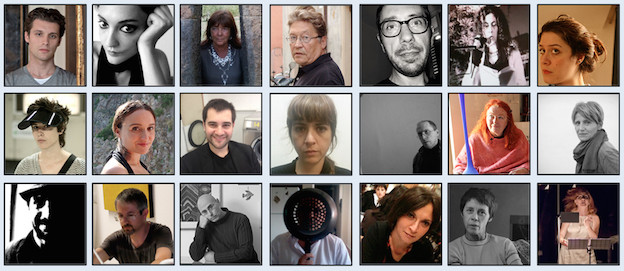 Today we shine the spotlight on our PennSound Italiana anthology page, lovingly edited by Jennifer Scappettone, which offers our listeners a stellar survey of contemporary Italian poetry. When we launched the page many years ago, Scappettone offered an introduction to the collection in an essay published at Jacket2. Here's how she starts off: We seek over the course of this ongoing project to offer a broad sense of the field, filling in the substantive gaps in global access to Italian poetry (as both written and sonic text — even within Italian borders), and expanding awareness of its range of practitioners, with an emphasis on marginalized and experimental voices of the twentieth and twenty-first centuries. It is an effort — a unique one, in our reckoning — to "liberate" the spectrum of Italian poetry for as broad a public as possible through audio and video recordings, given that the publishing industry and the translation market are endangered and/or blinkered enough to condemn a significant swath of both historical and contemporary innovation to oblivion. As such, this live archive extends the task of PennSound writ large. Regular updates have been made to the page over the intervening years and we're always eager to have more work from Scappettone to share with our listeners. At present, the page has recordings from Gian Maria Annovi, Mariasole Ariot, Maria Attanasio, Luigi Ballerini, Gherardo Bortolotti, Franco Buffoni, Maria Grazia Calandrone, Alessandra Cava, Laura Cingolani, Corrado Costa, Elisa Davoglio, Milo De Angelis, Alessandro De Francesco, Antonella Doria, Giovanna Frene, Florinda Fusco, Samir Galal Mohamed, Marco Giovenale, Milli Graffi, Mariangela Guatteri, Giulio Marzaioli, Andrea Inglese, Eva Macali, Enzo Minarelli, Tommaso Ottonieri, Angela Passarello, Jonida Prifti / Stefano Di Trapani (a.k.a. Acchiappashpirt), Laura Pugno, Andrea Raos, Marilena Renda, Lidia Riviello, Amelia Rosselli, Rosaria Lo Russo, and Andrea Zanzotto. Click here to start browsing PennSound Italiana, and don't forget that Scappettone's Jacket2 intro includes some of her highlights from the collection, including background information on the historical nature of each recording.
Posted 7/2/2025
.jpg)
Today we are highlighting Mark Van Doren: Portrait of a Poet, a remarkable 1994 short film produced by Adam Van Doren, the poet's grandson. Running just over a half hour, the documentary offers up marvelous photo and video footage of Van Doren in conversation and reading his work, along with interviews with friends and contemporaries including Robert Giroux, Allen Ginsberg, Alfred Kazin, John Hollander, Louis Simpson, Daniel Hoffman, Richard Howard, and more.
You can watch this documentary on PennSound's Mark Van Doren author page, alongside recordings from several sources, including a 1935 set of three poems for Columbia University's Speech Lab, a 1960 set of four titles for the Spoken Arts Treasury and the 1967 Smithsonian Folkways album, Mark Van Doren Reads from His Collected and New Poems, whose twelve tracks encompass thirty-two poems in total. Listen in to any and all of these recordings by clicking here.
Posted 6/30/2025
Even casual readers will be familiar with “Kaddish,” in which Ginsberg memorializes his mother Naomi, attempting to contextualize her debilitating mental illness within a newsreel of early 20th century history. We pick up the story two decades later, as Ginsberg now begins to document the decline of his father Louis in one, or eventually, two poems with the same name: “Don’t Grow Old,” the latter with the title in quotation marks. Here, the approach is likewise fragmented, but rather than reflecting the entropy of his life with Naomi, there is a unity of sorts in Ginsberg’s use of montage, allowing individual scenes, reckonings, and bits of wisdom from his father’s decline to resonate in brief poetic vignettes.
The first “Don’t Grow Old,” written around the time of Louis’ death, appeared in the collection Mind Breaths in 1978; the latter can be found in 1982’s Plutonian Ode. However the two works were envisioned by Ginsberg as one complete poem, as evidenced by a number of recordings made by Robert Creeley at the time of the second poem’s composition and the broader recorded history contained on Ginsberg’s PennSound author page. As we explore “Don’t Grow Old” (and “‘Don’t Grow Old’”), we’ll witness Ginsberg come to terms with his father through his decline, then see how latter poem reframes that experience through Louis’ reciprocal acceptance of his son’s queer identity, offering up potent lessons in mourning, as well as an important statement regarding homodomesticity and intergenerational reconciliation.
Produced by PennSound (and Jacket2) editor Michael Hennessey, PennSound Rewind, a new podcast series produced aims to tell the tales hiding among our 50,000+ recordings and “to look back and pinpoint some of the people, recordings, and moments — both big and small — that made PennSound what it is today,” guided by the notion that “an archive is a story that unfolds in real time.” Click here to check out the complete series and stay tuned for new episodes every month or so.
Posted 6/27/2025
Today we are checking out Hanuman Presents!, a filmic tribute to Raymond Foye and Francesco Clemente's influential press of the same name, directed and produced by Vivien Bittencourt and Vincent Katz. The performances that form the heart of this film took place at the St. Mark's Poetry Project that took place on May 18, 1989. Introduced by Foye, the film was edited by by David Dawkins and Henry Hills, and features an impressive line-up of poets spanning two generations — Gregory Corso, Elaine Equi, Bob Flanagan, Amy Gerstler, Allen Ginsberg, Richard Hell, Herbert Huncke, Katz, Taylor Mead, Cookie Mueller, Eileen Myles, Rene Ricard, David Trinidad, John Wieners — reading from their work. As Foye notes in his opening comments, all of Hanuman's living authors are included in the event. While the poets and the poems are wonderful enough on their own, the performances are cleverly accompanied by abstract images from the films of Rudy Burckhardt. Running just shy of forty-three minutes, Bittencourt and Katz's film is both a stunning time capsule and testimony to the power of Foye and Clemente's innovative press. You can start watching by clicking here. Be sure you don't miss Bittencourt and Katz's tribute to Jack Kerouac's Mexico City Blues, filmed at the Knitting Factory in 1988, which is also available on the same page.
Posted 6/25/2025
Today we're taking another look at our author page for British poet and translator Lee Harwood, whose work crossed the Atlantic to find affinities with the poets of the New York School.
When Harwood passed away in the summer of 2015, he was remembered by The Argus for his dedication to both poetry and politics, serving "as a union official and as a member of the Labour Party during its most radical years." John Harvey offered up a recollection of his long friendship with Harwood, including the memory of an event in the last year of the poet's life when they both read their work with jazz accompaniment, conjuring up memories of Harwood's formative experiences in New York during the 1960s. Finally, Enitharmon Press, publishers of Harwood's most recent collection, The Orchid Boat hailed him as "not only a highly gifted and skilled poet, but a man of immense kindness and thoughtfulness."
The heart of our Lee Harwood author page is his career-spanning Rockdrill album The Chart Table: Poems 1965-2002, which showcases twenty titles from across his career, including "As Your Eyes Are Blue," "Linen," "Animal Days," "Summer Solstice," "African Violets" and "Gorgeous." Another highlight is "Chanson Tzara," a twenty-seven minute audio composition that serves as an ambitious and fully-dimensional tribute to both Tzara and the chaotic spirit of Dada made contemporary, starting with a hectic sound collage of found samples, ring modulated radio noise, music, and text-to-speech voice generation, which eventually gives way to a touching and elegiac voiceover by Harwood that weaves together memories, translations, and the young poet's conversation with Tzara. Finally, we have Harwood's half hour set from the Shearsman Reading Series at London's Swedenborg Hall in June 2008. You can listen to all of the aforementioned recordings by clicking here.
Posted 6/23/2025
Today we're revisiting an important recording from the PennSound archives that was recently segmented. In 1965, towards the end of her life, modernist icon Mina Loy sat down with another iconic poet, Paul Blackburn, for a sprawling ninety-minute conversation that covered various topics across the span of her life and also featured Loy reading extensively from her poetry. While Blackburn is the primary interlocutor, Joan Blackburn informed us that poet and publisher Robert Vas Dias was also present and took part.
The complete recording has been broken down into forty-three discrete MP3 files, isolating threads of their conversation and showcasing the individual poems read. Topics discussed include Loy's "life in England and her husband Arthur Cravan," Robert Creeley, James Joyce, "giving up poetry," "exhibiting paintings in Paris," "how she began writing," "'strange experiences,'" republishing her work, and more. Individual poems read include "Love Songs" (split into separate files for each of its thirteen parts), "Parturition," "Three Italian Pictures," "On the Costa San Giorgio," and more. Listen in by clicking here.
We're grateful to Joan Blackburn and Roger Conover (Loy's editor and literary executor) for their permission to present this historic recording, as well as to Douglas Storm who provided us with a copy. While this is the sole recording present on PennSound's Mina Loy author page, don't forget about Loy's homepage at the Electronic Poetry Center, which we launched in 2020. Sandra Simonds served as coordinator for the page, selecting the poems and other writings presented there and wrote notes on many of her choices. Jack Krick handled the coding and site design, while Karla Kelsey and Ariel Resnikoff also had some input into the page.
Posted 6/21/2025
Begins jokingly proclaiming, "I'll make my Ernie Gehr film," a major preoccupation of my generation in the late 70s/early 80s, & then this very raw other thing proceeds to unfold, raw because I only had enough money (a loan from Abby Child) to do 4 shoots never having done sync & using outdated film stock from Rafik & an unfamiliar, undependable camera & trying to keep everything together & everything going wrong, yet determined to make concrete the ideas I had been abstractly developing over several years with whatever I got back from the lab no matter & so abandoning all caution to open a new area, I decided who could possibly talk better than poets? Edited in Times Square. Fans of Hill's Money (1985) will recognize many familiar techniques at play here, with rapid-fire cuts creating a dense, rhythmic collage of sights and sounds punctuated by pregnant pauses, bursts of noise, and enigmatic, orphaned fragments of speech. It would be a mistake to judge it solely in its relationship to Money, however, since the two films differ radically in scope and spirit: while the latter is an expansive survey of the city and its scenes (including poets, dancers, and musicians), the feel here is much more intimate, between the smaller cast and the more limited visual vocabulary. At the same time it's fascinating to see hallmarks of Hills' style in a raw early state, particularly given the influence of the considerable technical challenges that Hills enumerates above. You can watch Plagiarism by clicking here.
Posted 6/20/2025
It all started with a well-received ad Preiss directed for the NBA starring Bill Murray. "Then the Yellow Pages — poor Yellow Pages — they were about to just die. There was no saving the Yellow Pages. Yellow Pages were on life support and they hired an agency to try to figure out a way of keeping the Yellow Pages relevant. Now in hindsight it was really just hopeless." That "absolutely terrible" idea was disposing with the beloved "let your fingers do the walking" slogan and imagery and switch their iconography to a light bulb, thus making the book "a kind of an inspirational text and a work of literature, where it gives you ideas." "A beautiful idea, but a doomed one," as Preiss recollects.
Because the Yellow Pages didn't have the money to get Bill Murray they wound up with Jon Lovitz instead, but Lovitz was reluctant because "the scripts [weren't] funny," though working together Preiss and Lovitz were able to revise them into something workable. Now they needed a literary critic to deliver a few lines, "and I had this idea to cast Charles and I figured Charles, it's so perfect for him, he'll be able to just go for it." Everyone at the agency was please with the results — "Charles is amazing ... like, it's beyond" — to the extent that they wrote and shot a second series of spots starring Bernstein exclusively.
They then took all of this back to the Yellow Pages, and that's where things start to break down. Listen in to hear the company's reaction, Preiss discussing his long friendship with Bernstein facilitated through filmmaker Henry Hills, and more. We're very proud to be able to host the full set of radio and TV ads Preiss made, along with outtakes, which are well worth checking out whether you already know and love them or if you're just seeing them for the first time. We're also grateful to Davide Balula, who made the recording and serves as interlocutor throughout, for sharing this with us. Click here to start listening.
Posted 6/18/2025
Today we revisit our author page for pioneering queer poet John Wieners, whose long writing life took him from Black Mountain to San Francisco to New York City to Buffalo, and finally to Boston, where he spent the last three decades of his life. It's also a great opportunity for our listeners to reacquaint themselves with the recordings available on PennSound's Wieners author page.
Our earliest recordings include Wieners' participation in the Mad Monster Mammoth Poets Reading for Auerhahn Press in 1959 and a 1960s appearance on Paul Blackburn's radio program. That's followed by a trio of recordings from 1965: Wieners' July 14th set at the Berkeley Poetry Conference, another July reading possibly in Berkeley, and a brief recording from SUNY-Buffalo that September. Next, we have a October 1966 event from the 92nd Street Y's Unterberg Poetry Center and a pair of long recordings made at SUNY-Buffalo in 1967 and at the St. Mark's Poetry Project in 1968. Following that we have a wonderful conversation with Walter Lowenfels, Lillian Lowenfels, and Alan DeLoach in March 1969 and two recordings from Boston in 1972: two days' worth of visits to Robert Creeley's ENG-1670 class at Harvard and a short appearance on WBCN-FM.
Jumping forward to the 1980s, there are two tracks from The World Record: Readings at the St. Mark's Poetry Project, 1969-1980 and three poems recorded at Brooklyn College in 1988. The next decade starts in grand fashion with a pair of recordings from the spring of 1990: the first in San Francisco, followed by an appearance at the St. Mark's Poetry Project. There's another Poetry Project set from the fall of 1996, and an October 1999 reading at the Guggenheim to round things out, along with the recently-added film Hanuman Presents!
Posted 6/18/2025
Today we survey the recordings you'll find on our author page for legendary poet Ted Joans.
First, thanks to the S Press Collection, we have Joans' Jazz Poems, tape #72 in the series, which was recorded in Germany in November 1979 and released the following year. Running nearly seventy minutes, this album sees Joans run through fourteen poems in total — "The Truth," "Jazz Is My Religion," "Bed," "Ouagadougou Ouagadougou," "I Am The Lover," "Nine Month Blues," "Africa," and "Long Gone Lover Blues" among them — with laid-back accompaniment from a combo that included Uli Espenlaub on keys, Andreas Leep on bass, Dietrich Rauschtenberger behind the drums, and Ralf Falk on guitar. Jazz Poems is a substantial addition to our collection of Joans recordings, and a welcome one given his influence upon multiple generations of poets.
For those interested in learning more about Joans, there's no better place to start than Wow! Ted Joans Lives!, the 2010 documentary by Kurt Hemmer and Tom Knoff that we've been proud to share with our listeners for the past five years. Envisoned as "a visual and aural collage," the film "examin[es] the life and works of the legendary, tri-continental poet Ted Joans, who was born in Cairo, Illinois on 4 July 1928 and went on to become one of the significant poets of his generation performing his work in the United States, Europe, and Africa." Hemmer and Knoff continue, "The film has the sound of jazz and the flavor of surrealism. As Ted Joans declared, 'Jazz is my religion and Surrealism is my point of view.'" You'll find the complete award-winning documentary here, along with a short clip of Joans reading in Amsterdam in 1964 — taken from Louis van Gasteren's film, Jazz & Poetry — and the aforementioned S Press cassette.
Want to read more? Visit the PennSound Daily archive.
|
New at PennSound
- New series page: Love Jawns: A Mixtape
- Two workshops by Clark Coolidge for the Summer Academy
of Practicing Writers, Naropa, July, 1, 1980
- Laura Jaramillo and Travis Sharp reading for the St. Bonaventure Visiting Poets Series, 2025
- Belladonna* Reading Series: Emily Martin and Julian Talamantez Brolaski, Von Bar, NYC, September 11, 2025
- Eric Mottram Centennial Collection, featuring recordings
from his extensive collection and including Gilbert Adair, Bruce Andrews, John Ashbery,
Bill Berkson, Ted Berrigan, Bob Cobbing, Robert Creeley,
Robert Duncan, Allen Fisher, Allen Ginsberg, Michael McClure, Charles Olson,
Muriel Rukeyser, and many more
- New series page: Seattle Subtext Series,
1996–2009, including readings by Myung Mi Kim, Leslie Scalapino, David Bromige,
Robin Blaser, Tom Raworth, Bernadette Mayer, and Rae Armantrout
- New series page: Solarities,
Duke University, 2023–2025, including readings by Stacy Szymaszek, Hoa Nguyen,
Will Alexander, Joseph Donahue, and Nathaniel Mackey
- George Quasha reading view of the sleeping dragon, Barrytown NY, August 28, 2025
- Two new recordings featuring Brian Ang
- New author page: James Dunn, featuring readings from 2015 to 2024
- Peter Gizzi reading for the But Company reading series, Kelly Writers House,
September 25, 2024
- Six new readings by Lonely Christopher, 2018–2025
- Barbara Henning reading for the launch of Girlfriend, Detroit Public Library, July 18, 2025
- 34 poems read by John Ashbery, compiled
by Gryphon Rue, 2025
- Language/Noise Festival, New York Public Library, January 11, 1982
- Bob Holman: A Couple of Ways of Doing Something (2006),
The Awesome Whatever (2007), and The Cutouts (2019)
- Bob Kaufman reading at Malvinas Cafe, San Francisco, December 6, 1974
- Diane Ward retrospective video made after Sacramento Poetry Center reading, July 2025
- Stacy Doris Cake Part videos, Portland, Oregon, 2011
- Michael Lally, Lost Angels, 2010
- Cecilia Vicuña reading at University of Texas
Permian Basin, Odessa, TX, April 12, 2002
- New author page: Gilbert Adair, featuring a reading from
h c e, May 16, 2025
- Maggie Nelson reading and conversation for Kelly Writers House
Fellows Program, April 29–30, 2024
- Leland Hickman, Great Slave Lake Suite
- Ken Taylor reading in the Wexler Studio at Kelly Writers House,
March 4, 2025
- Boise State University spring 2025 readings, featuring
Xavier Cavazos, Dan Beachy-Quick, Timmy Straw, Hannah Brooks-Motl, and Matvei Yankelevich
- Harryette Mullen reading and conversation for
Kelly Writers House Fellows Program, April 1–2, 2024
- Eugene Ostashevsky reading and conversation with Kevin
M.F. Platt, Kelly Writers House, February 20, 2024
- Julia Bloch, Laynie Browne, Elizabeth Kim, Jena Osman,
and Syd Zolf on Theresa Hak Kyung Cha's Dictée,
Kelly Writers House, October 15, 2024
- Rod Smith reading for the Hidden Palace Reading Series, Baltimore, MD, January 5, 2023
- Sean Bonney and Joshua Clover reading at University of Warwick, June 11, 2015
- Bob Holman reading in the Wexler Studio at Kelly Writers House, October 9, 2024
- Sophia Naz reading in the Wexler Studio at Kelly Writers House, November 21, 2024
- George Quasha reading surface retention in the Wexler Studio at Kelly Writers House, March 26, 2025
- Living & Seeing Charles Reznikoff, Documentary, dir. Xavier Kalck,
Naomi Toth, and Fiona McMahon, 2024
- Rae Armantrout reading at Kelly Writers House, Sussman Poetry Program, November 6, 2024
- Julie Patton reading at Temple University, Philadelphia, March 20, 2025
- Three new Old Songs albums of archaic Greek performances: Corinna (2020),
Callimachus (2022), and Sappho (2024),
produced by Mark Jiclking and Chris Mason
- Stanley Silverman and Richard Foreman theatrical collaborations, with performances ranging from 1974 through 2018
- Kate Colby reading in the Wexler Studio at Kelly Writers House, October 17, 2024
- Khonsay: Poem of Many Tongues, a film by Bob Holman and Steve Zeitlin, 2015
- Jerome Rothenberg memorial program, June 24, 2024
- Rachel Blau DuPlessis's complete grid of Drafts, 1988–2024
- VOX Audio Collection, 2005–2011
|




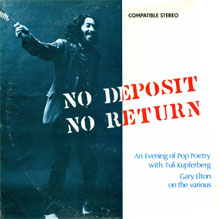
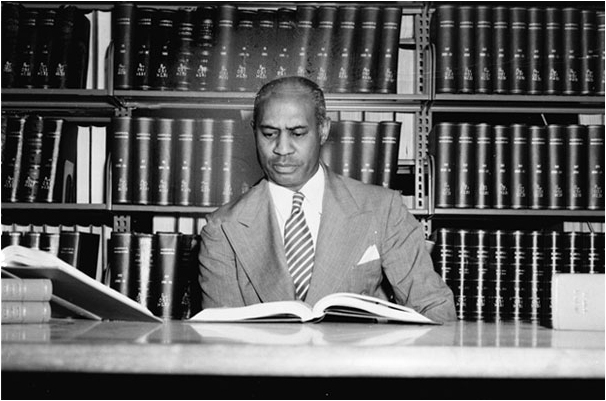


/media/movies/covers/2018/06/music2.jpg)



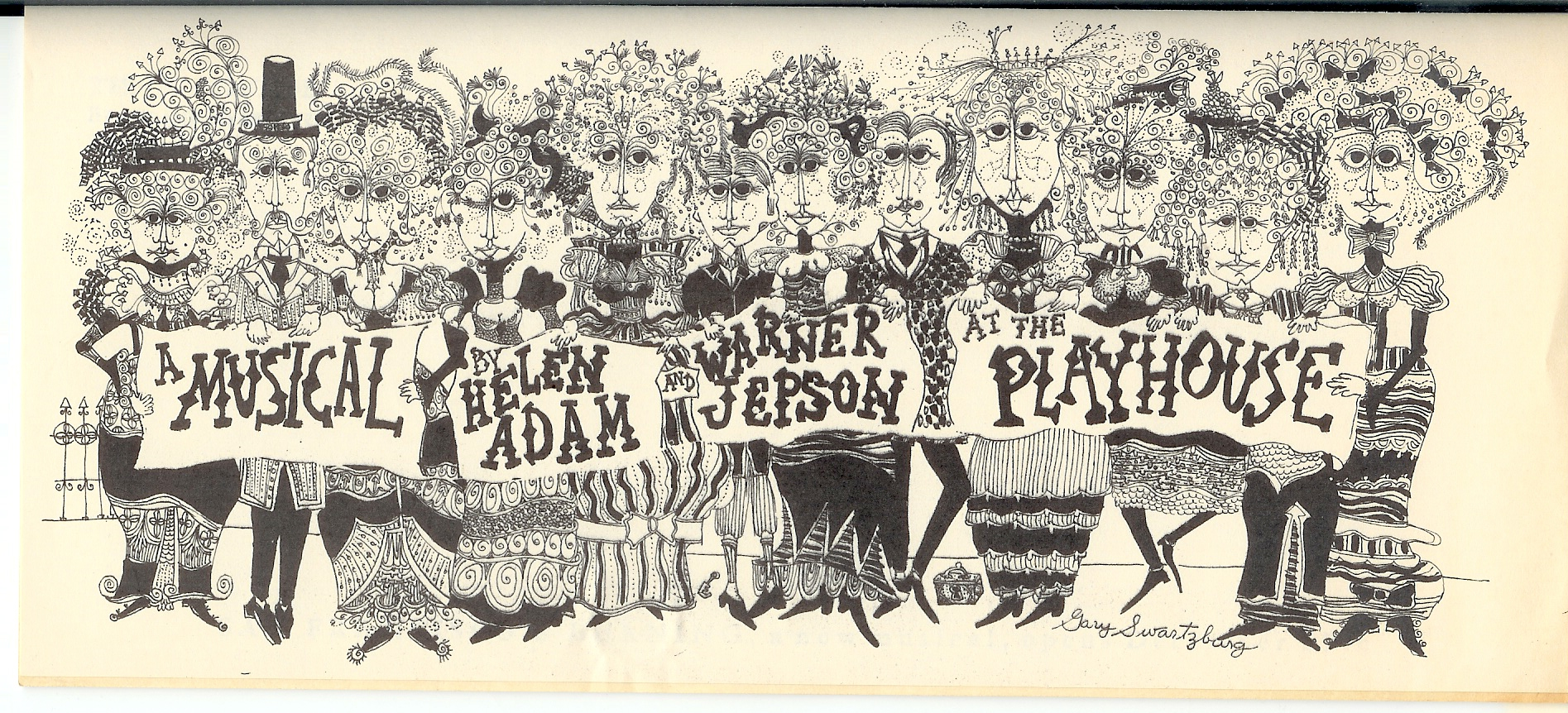
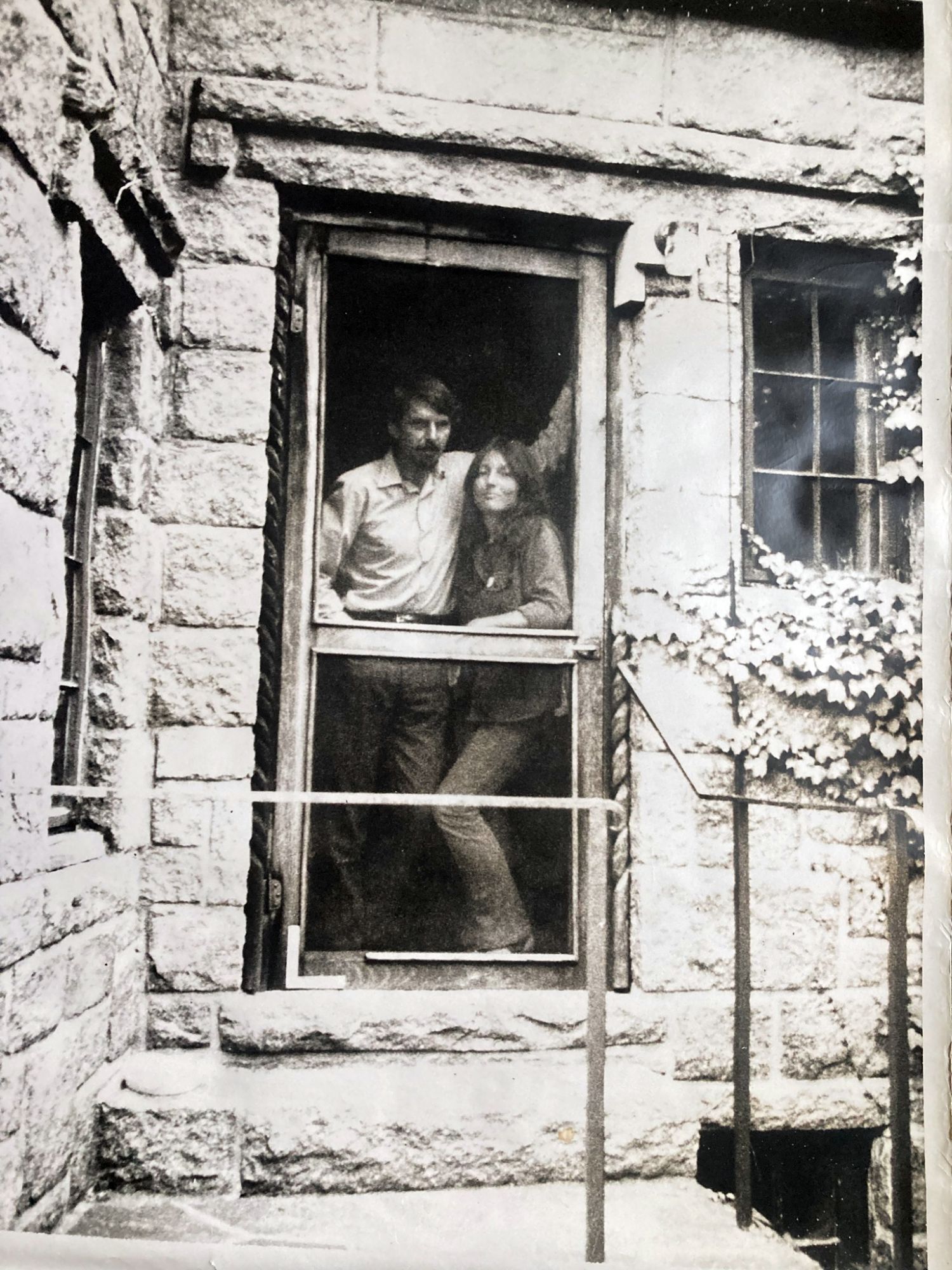


.jpg)

